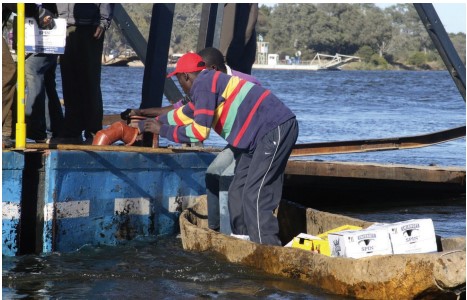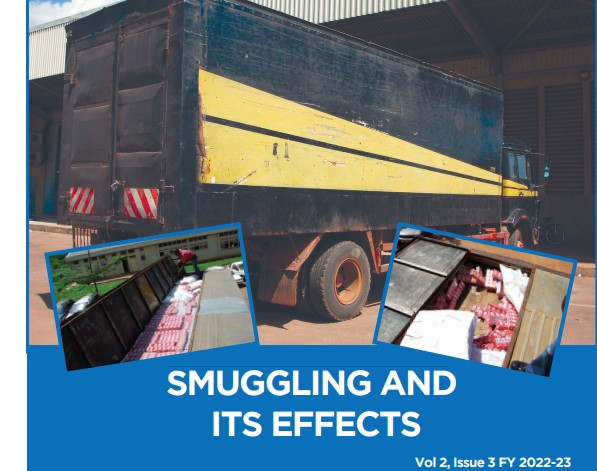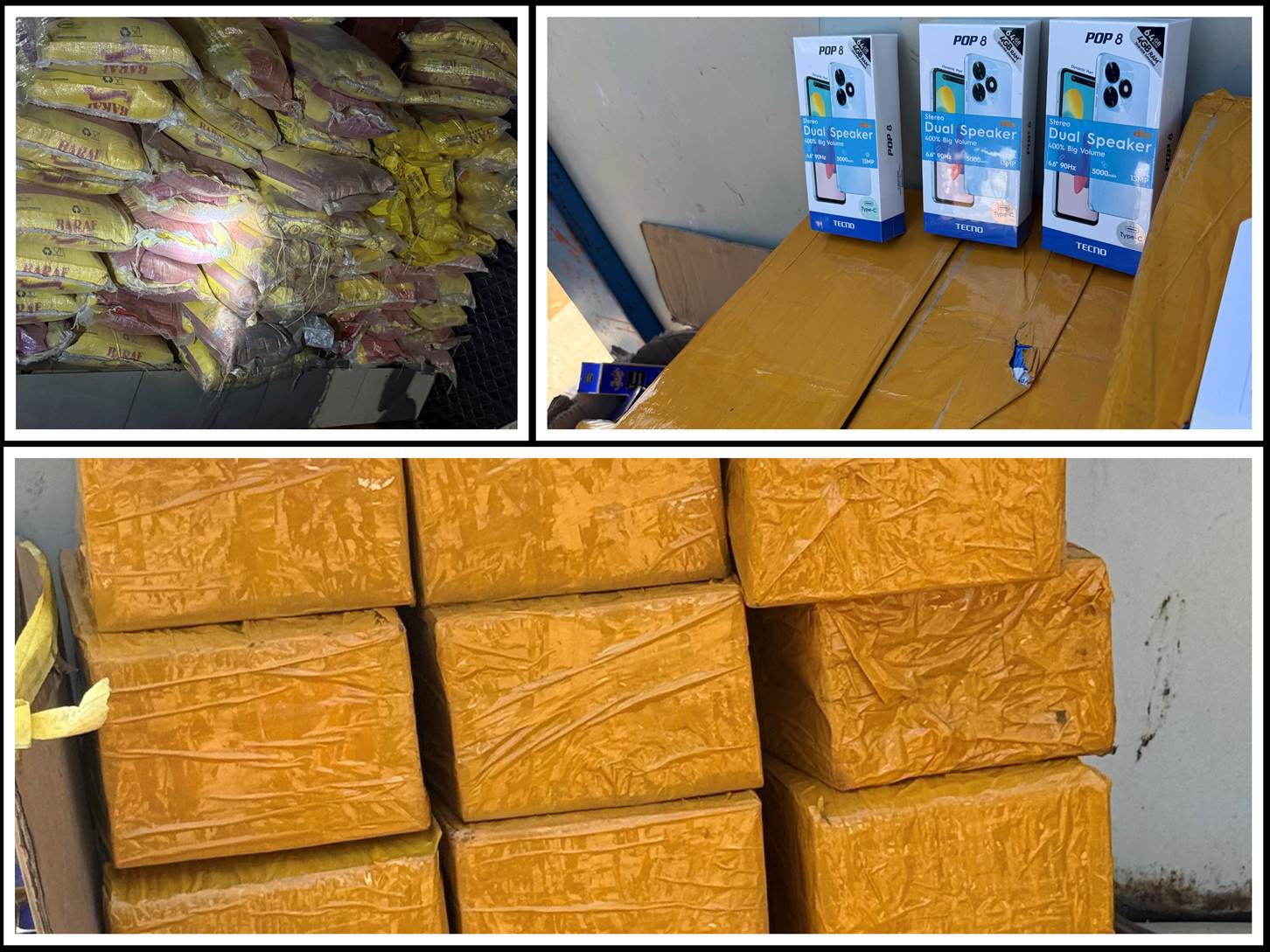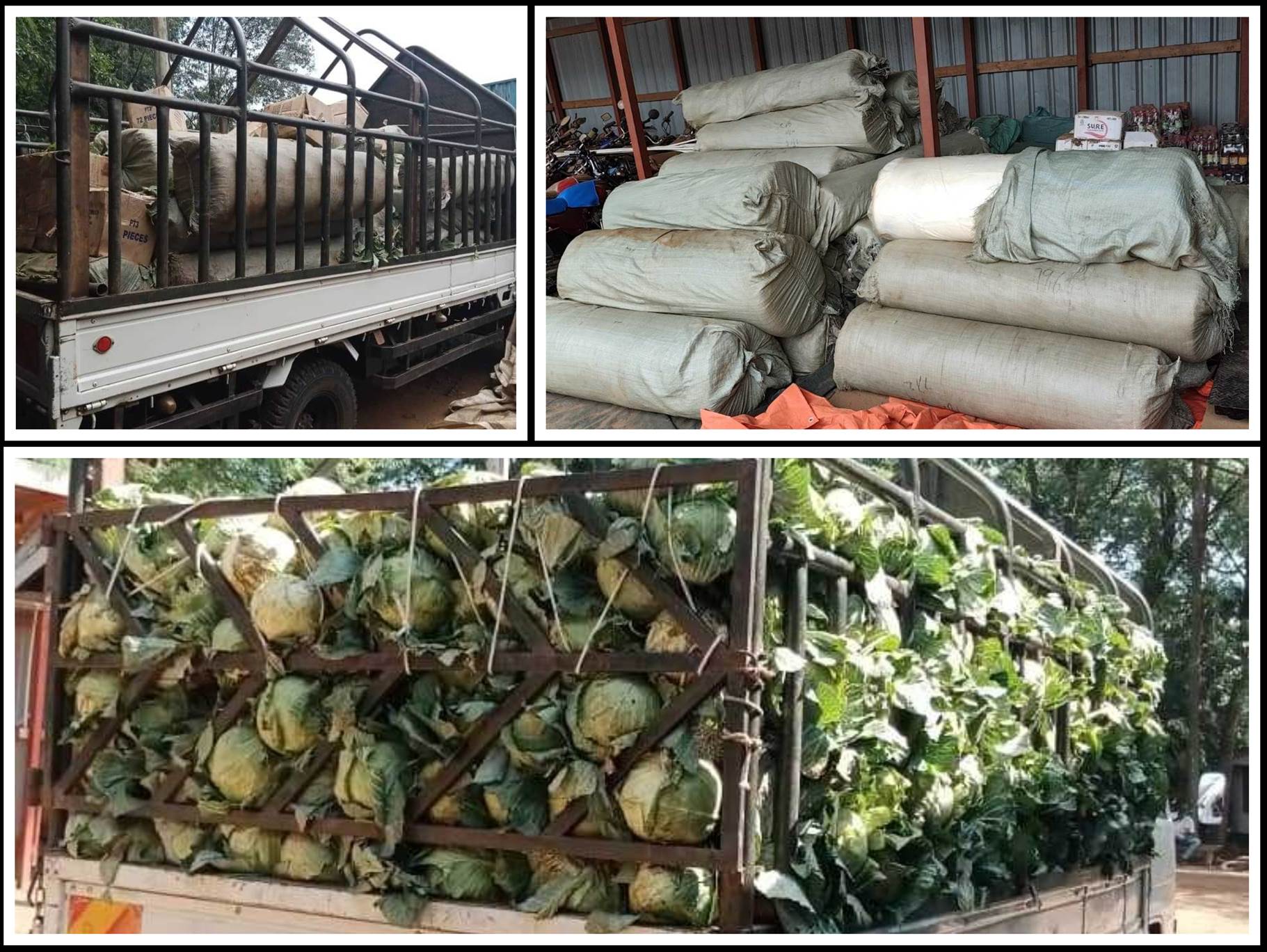Smuggling means the importation, exportation, or carriage coastwise, or the transfer or removal into or out of a Partner States, of goods with intent to defraud the Customs revenue, or to evade any prohibition of restriction on, regulation or condition as to, such importation, exportation, carriage coastwise, transfer, or removal, of any goods. In short Smuggling is an activity which involves the importation or exportation of goods with the objective of evading taxes.
Smuggling is an ILLEGAL method of conducting business.
The principle causes of smuggling are greed for wealth, ignorance and lack of nationalism.
OUTRIGHT AVOIDANCE OF OFFICIAL CUSTOMS CONTROLS ACROSS THE BORDERS for example on Lake Victoria, overland on road, rail and often through the bush ways. This form of smuggling is generally associated with highly marketable goods, goods of high tax value, and prohibited or restricted goods.

UNDERDECLARATION OF GOODS
This is a circumstance where the importer declares less quantity on importation documents than the actual goods being imported. This form of smuggling occurs through customs controls – usually deliberately, on the side of the importer.
UNDERVALUATION OF GOODS
This is a situation whereby goods are given a lower value than they actually have. Undervaluation often happens out of negligence. It aids smuggling indirectly.
MISCLASSIFICATION OF GOODS
This means that goods are declared under a different class of imports particularly to attract lower rates of tax with intent to reduce the tax liability. This again may happen out of ignorance, negligence or deliberately. This problem also aids smuggling.
FALSIFICATION OF DOCUMENTS
Sometimes documents pertaining to certain goods are tampered with in their particulars
MISDECLARATION OF COUNTRY OF ORIGIN.
This is a circumstance whereby a different country is declared as the source of goods instead of the correct country of origin. It is very common with COMESA states because of the lower tariff rates for goods originating from COMESA and non-member states.
SHORTLANDING TRANSIT AND/ OR RE-EXPORT GOODS.
Transit goods are those goods which are destined to other countries through Uganda, e.g. from abroad through Uganda to Rwanda, DRC, etc…
Re-exports are goods which come into the country but are these cases, Smuggling occurs when the goods finally end up on the Uganda market, subsequently exited. In both leading to total evasion of taxes and other controls.

There are three major reasons:
- Protection of the economy; such as local industries, local markets and primary production.
- Protection of society against health and environmental hazards.
- Security purposes by restricting importation of fire arms.
Please note:
Restricted goods means any goods the importation, exportation transfer or carriage coastwise, of which is prohibited, save in accordance with any conditions regulating such importation, exportation, transfer, or carriage coastwise, of which is in any way regulated by or under the customs laws.
Prohibited goods means any goods the importation, exportation, or carriage coastwise, of which is prohibited under this Act or any law for the time being in force in the Partner States.
LOSS OF REVENUE
Smuggling is an act of tax evasion which deprives government of revenue for public expenditure.
DISTORTION OF MARKET PRICES
Goods which are smuggled into the country are often sold a lot cheaper than goods brought onto market through the right procedures. Smuggling therefore deprives traders of free competition by creating undue competition with those who have paid taxes.
COLLAPSE OF LOCAL INDUSTRIES
A country achieves better economic growth by developing its own industrial base. Smuggling under-cuts prices of the locally manufactured goods thus destroying the market for local products. This leads to collapse of local industries.
UNEMPLOYMENT
When there is unfair competition in the market, compounded by the collapsing of industries, the labour market (employment base) is eroded. Many professionals, skilled and unskilled personnel remain jobless.
LOSS OF LIVES
Most smuggled goods e.g. drugs are substandard and as a result are harmful to the lives of those who consume them. This means that if they enter the country, they expose the life of consumers to a risk of suffering from diseases which subsequently lead to death.
INCREASED INSECURITY
Smuggling can cause in security especially when restricted goods like guns are smuggled. Such goods end up in the hands of a few people who can use them to destabilize the security of the citizens of the country.
IS SMUGGLING AN OFFENCE?
YES, smuggling is an offence under the East African Community Customs Management Act (EACCMA); the law that governs importation and exportation of goods.
Report anyone smuggling goods to the Regional Managers and or Assistant Commissioner Enforcement of Uganda Revenue Authority. A person whose information leads to recovery of taxes is entitled to a reward as provided for under Section 242 of the East African Community Customs Management Act (EACCMA).










